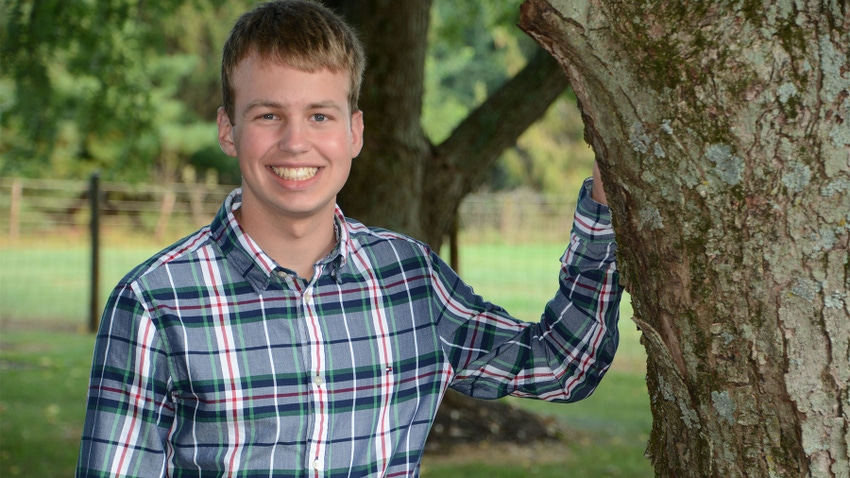November 16, 2023

by Blaine Wagner
Dairy cattle grazed in a green field and enthusiastic cows lined up for the milking parlor. This scene was a staple on my country road for over 100 years. To my disappointment, the dairy farm stopped milking last year. My sadness inspired me to conduct agriscience research through FFA on other sources of income for small farmers. I stumbled upon carbon credits.
The rapidly growing carbon credits industry serves as a way for farmers to increase their income and improve their soil health. Farmers earn carbon credits by changing their land management practices, increasing soil carbon levels. Farmers can earn up to $30 per acre each year through carbon credits.
I decided to research carbon sequestration to help farmers increase profit from their land. I desired to help farmers gain a better understanding of which management practices were the most effective at sequestering carbon. At the same time, I wondered which tests were the most accurate and cost-efficient.
Seek expert advice
I reached out to industry experts to gain a better understanding about existing research and possible tests. Ryan Dierking, senior scientist of regenerative agriculture at Indigo Ag, contributed scientific resources and answered several questions as I created the plan for my experiment. Braden Carpenter at Premier Ag connected me with local resources and introduced me to the manager of SureTech Laboratories, Jodi Jaynes. In addition, I found connections at Central Indiana Land Trust and the Department of Natural Resources to obtain permits and publish my work. These connections provided insight that helped me create my own research.
I tested 12 locations that used seven different land management practices. I also tested the accuracy of an at-home loss on ignition (LOI) test, which I designed, and existing lab LOI tests, compared to the carbon by combustion test. After testing, I concluded that soil organic carbon content from highest to lowest based on management practice was old-growth woods, pasture, prairie grass, woodland, hay, no-tillage and conventional tillage. I also found that the lab and home LOI tests followed the same trends as the carbon by combustion tests but ran 24% lower.
Research in action
Once I completed my research, my paper was published in the Natural Heritage Database. I communicated my findings with local farmers and encouraged them to consider carbon credit programs. The dairy farmer, Brian Huber, took interest in my research and entertained the idea of entering a carbon credit program.
I hope my research plays a small part in increasing local farmers’ income, improving soil health and decreasing the amount of carbon dioxide in the atmosphere. Perhaps in the future, I'll see dairy cows grazing along my road once again.
Thanks to my opportunities to conduct agricultural research through the FFA Agriscience Fair, I decided to attend Purdue University to major in biochemistry in the College of Agriculture. I will pursue a doctorate with the end goal of conducting agricultural research. Although traditional farming is not my path, my research will allow me to give back to the agriculture industry I love.
Wagner is a 2023-24 Indiana FFA state officer. He writes from Trafalgar, Ind.
You May Also Like




